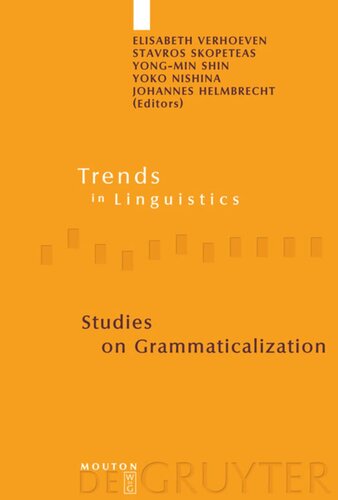

Most ebook files are in PDF format, so you can easily read them using various software such as Foxit Reader or directly on the Google Chrome browser.
Some ebook files are released by publishers in other formats such as .awz, .mobi, .epub, .fb2, etc. You may need to install specific software to read these formats on mobile/PC, such as Calibre.
Please read the tutorial at this link: https://ebookbell.com/faq
We offer FREE conversion to the popular formats you request; however, this may take some time. Therefore, right after payment, please email us, and we will try to provide the service as quickly as possible.
For some exceptional file formats or broken links (if any), please refrain from opening any disputes. Instead, email us first, and we will try to assist within a maximum of 6 hours.
EbookBell Team

5.0
60 reviewsGrammaticalization theory has played a major role in the developments in language typology and functional linguistics during the last three decades. Grammaticalization phenomena show that grammars evolve in a continuous way following cross-linguistically established diachronic paths.
The contributions in this book shed new light on some central issues in grammaticalization theory such as the (uni-)directionality debate, the relation between grammaticalization and constructions, and the concept of multiple grammaticalization.
Evidence for grammaticalization in several domains of grammar is presented: adpositions, numeral classifiers, honorifics, agreement markers, applicatives, reciprocals, delexical verbs, auxiliaries, relative clauses, and discourse particles. The empirical investigations come from several languages, among them many understudied languages such as Nanafwe, Maltese, Manambu, Chibchan and Siouan languages.